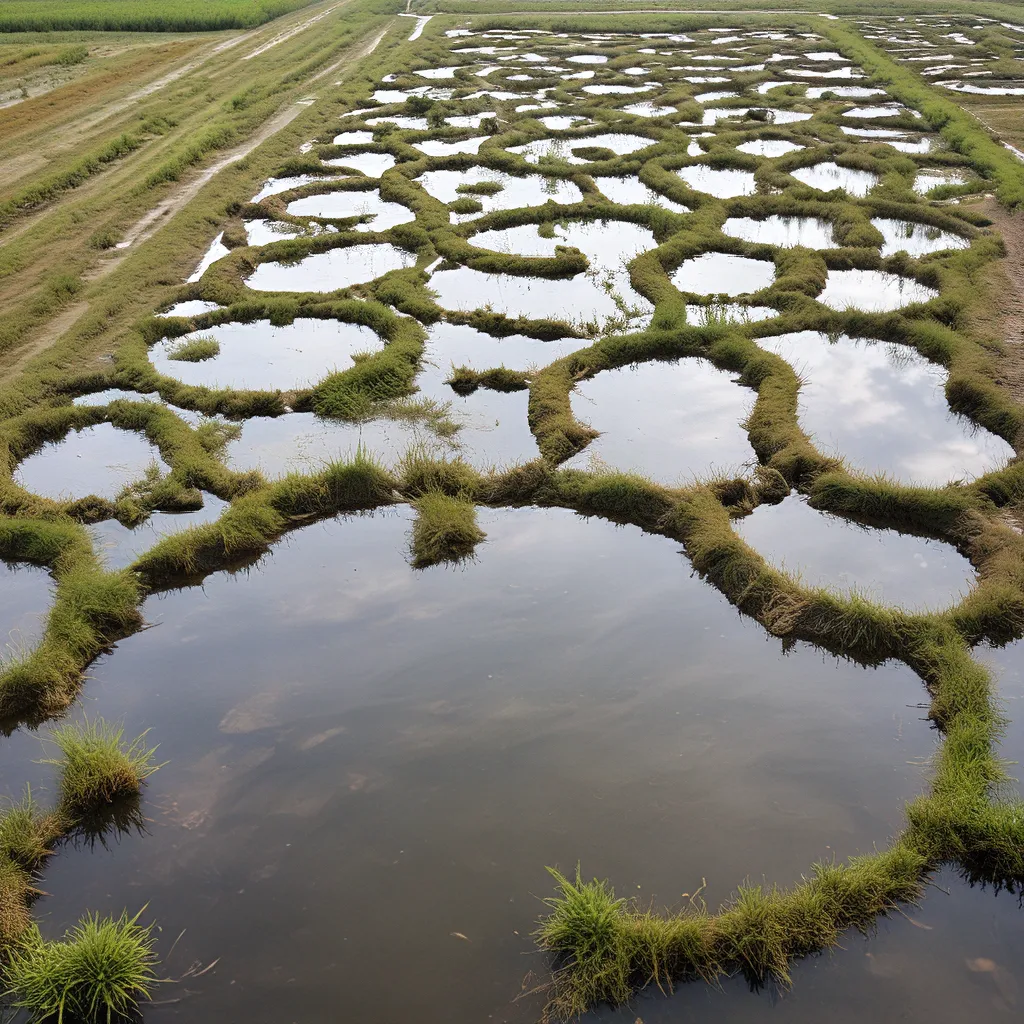
As the world grapples with the mounting challenge of environmental sustainability, the role of biotechnology in revolutionizing wastewater treatment has never been more crucial. Gone are the days when wastewater was simply a by-product to be disposed of – today, it’s a resource ripe with untapped potential. And I, for one, am thrilled to be at the forefront of this exciting journey.
Uncovering the Bioeconomy’s Transformative Power
When I first learned about the bioeconomy, I have to admit, I was a bit skeptical. It sounded like just another buzzword, right? But the more I dove into the research, the more I realized that this emerging field is anything but a passing fad. In fact, it’s a game-changer that’s poised to revolutionize the way we approach everything – from the materials we use to the products we consume.
At its core, the bioeconomy is all about harnessing the power of biology to create sustainable, renewable alternatives to fossil-based materials and processes. And when it comes to wastewater management, the implications are nothing short of remarkable. Researchers are exploring ways to use bacteria, algae, and other microbial organisms to treat and even generate valuable by-products from wastewater – everything from clean energy to high-value chemicals and fertilizers.
It’s a far cry from the old days of simply dumping raw sewage into our waterways, isn’t it? And the best part? These biotechnology innovations aren’t just good for the environment – they’re also creating exciting new business opportunities and revenue streams for forward-thinking companies like Alpha Wastewater.
Bioplastics: Revolutionizing the Plastics Industry
One of the most exciting frontiers in the bioeconomy is the development of bioplastics – plant-based alternatives to traditional, petroleum-derived plastics. With the global demand for plastic projected to quadruple by 2050, the need for sustainable solutions has never been more pressing. And that’s where bioplastics come in.
These eco-friendly materials are made from renewable, biodegradable sources like sugarcane, corn, and even seaweed. And the best part? They can be used to create a wide variety of products, from packaging to textiles to automotive components. It’s a win-win situation – we get the convenience of plastic without the environmental baggage.
Just look at what Coca-Cola has been able to accomplish with their PlantBottle technology. By swapping out traditional plastic resin for a plant-based alternative, they’ve created a more sustainable version of their iconic soda bottles. And the best part? They’ve opened up their technology to other companies, helping to drive scale and affordability in the bioplastics market.
Harnessing the Power of Microbes
But the biotechnology revolution in wastewater management goes far beyond bioplastics. Researchers are exploring ways to use microorganisms to not only treat wastewater, but also generate valuable byproducts in the process. It’s a circular, closed-loop system that’s the epitome of sustainability.
Imagine a future where wastewater treatment plants are transformed into vibrant, microbial-powered factories – churning out everything from renewable energy to high-value chemicals and fertilizers. It’s a far cry from the energy-intensive, waste-producing facilities of the past.
And the best part? These biotechnology innovations aren’t just good for the environment – they’re also creating exciting new business opportunities for companies willing to think outside the box. Alpha Wastewater, for example, is at the forefront of this revolution, incorporating cutting-edge biotech solutions into their treatment processes to drive greater efficiency and profitability.
The Sustainable Wastewater Treatment Revolution
As I reflect on the incredible progress that’s been made in the world of wastewater management, I can’t help but feel a sense of excitement and optimism. Gone are the days of linear, wasteful systems – instead, we’re witnessing the rise of circular, regenerative approaches that treat wastewater as the valuable resource it truly is.
And the best part? This is just the beginning. Researchers are continuing to explore new frontiers in biotechnology, unlocking ever-more-impressive ways to harness the power of microorganisms to transform wastewater into fuel, fertilizer, and even high-value chemicals. It’s a revolution that’s poised to redefine the entire wastewater treatment industry.
So, if you’re like me and you’re passionate about sustainability, I encourage you to dive deeper into the world of biotechnology and the bioeconomy. Because the future of wastewater management is bright, and it’s only going to get brighter from here.